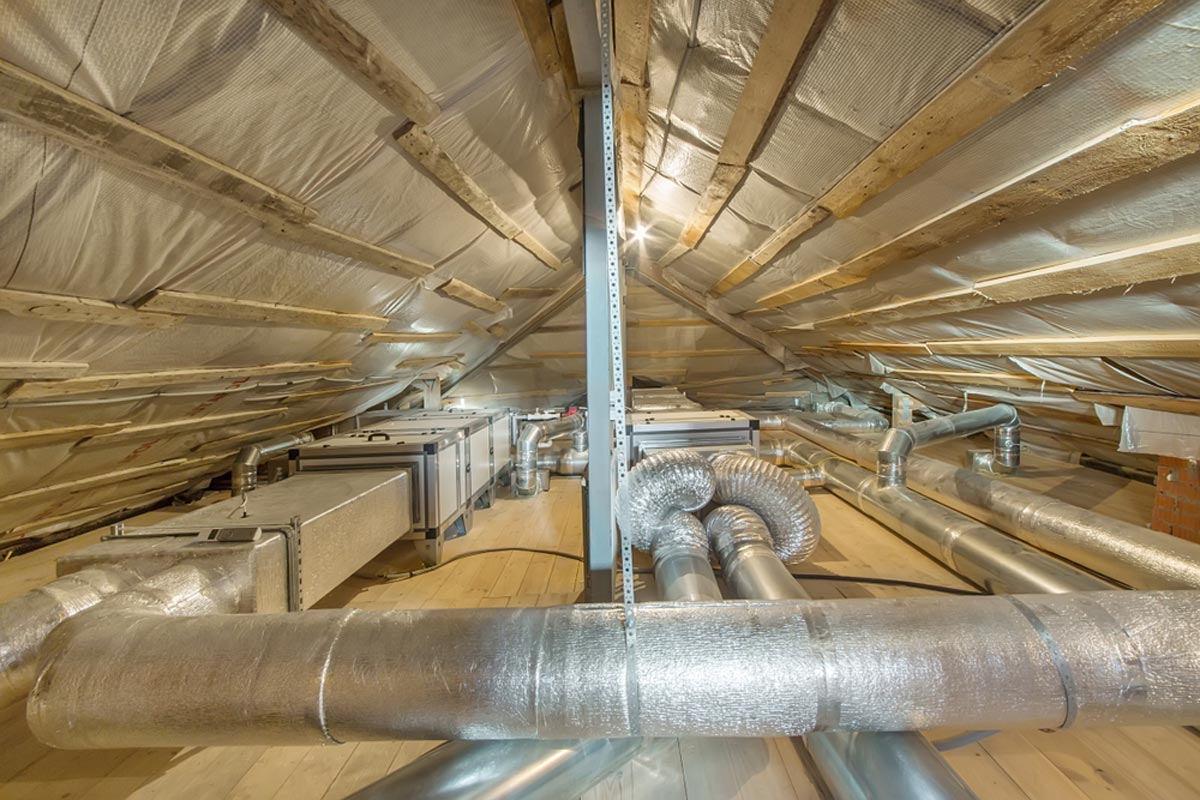Insulating the ductwork is essential for more reasons than just energy efficiency if you have central air conditioning. After all, cool air traveling through heated regions of a structure can generate condensation and leaking, leading to mold growth and safety concerns.
Furthermore, heat loss via the duct surfaces has a predictable and unavoidable impact on the system. In this case, adequate ductwork insulation material lowers heat loss and tends to minimize energy use.
Inspecting The Ductwork
Malfunctioning duct systems often waste 20% of the airflow that travels through improperly sealed or linked connections, contributing significantly to household energy loss. So, if you have uncomfortable rooms that are difficult to heat and cool, you certainly have underperforming ductwork.
In such cases, Denver Home Energy employs both a blower door test and a CFM analysis to find defects in your ductwork. We perform these tests by closing the home’s vents and increasing the airflow in the ductwork to determine the level of leakage in the circuit.

Installing Ductwork Insulation
Weather in the summer and winter appear to change frequently. In fact, because of our ever-changing environment, professionally insulated ducting throughout your house is critical to maintaining year-round pleasure.
The most common material in use for heating systems ductwork is fiberglass, which comes in various thicknesses. There is also a stiff insulating board and flexible duct cover. In general, the type of insulation chosen is determined by the size and structure of your ductwork, as well as your budget and applications.
If you have ducting that runs through an unmanifested area, you should have it properly inspected. Leaking ductwork in unconditioned rooms can cause air conditioning and heat to escape from the distribution network and the building.
Effective duct insulation and closing are critical to keeping your house pleasant while keeping your electricity expenses low. Moreover, it’s crucial to the performance of the home’s HVAC systems that your ductwork be adequately sealed.
Nicely insulated air ducts provide a shield against concerns such as backdraft, which occurs when appliances create dangerous gases such as CO2. Aside from that, correctly working ductwork can minimize your environmental impact because your house will use less electricity regularly.
